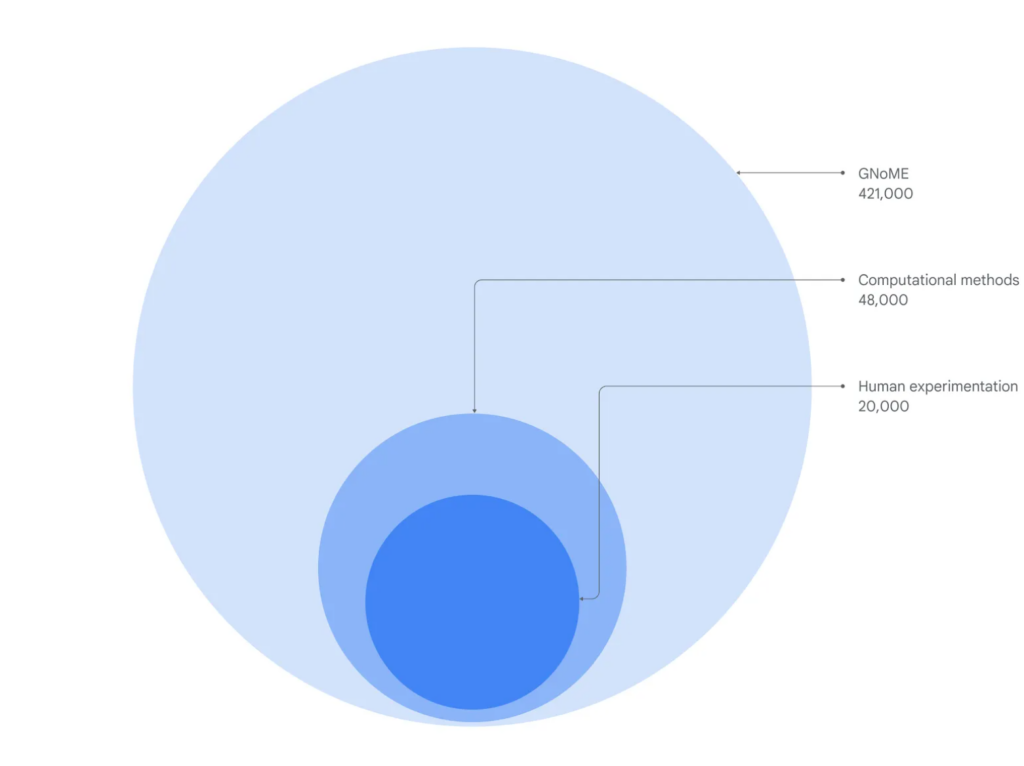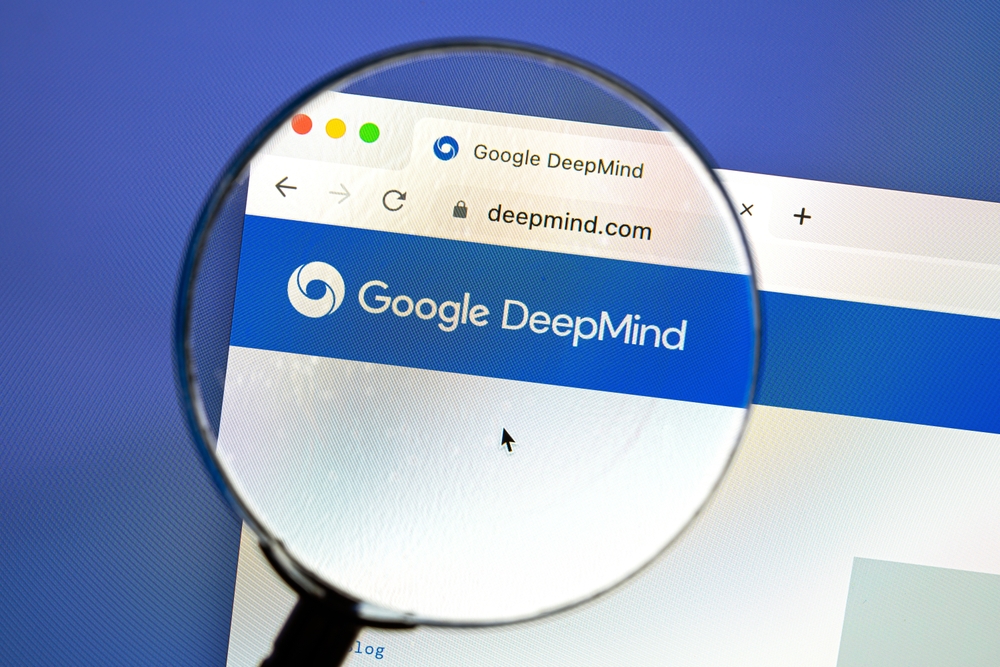Google DeepMind’s AI platform, Graphical Networks for Material Exploration (GNoME), has predicted the existence of over 2 million new materials, of which 700 have been sent for lab synthesis and further testing.
Dogus Cubuk, the materials discovery lead at Google DeepMind, explained the purpose of the study, which is published in Nature; “While materials play a very critical role in almost any technology, we as humanity know only a few tens of thousands of stable materials.”
GNoME operates similarly to DeepMind’s AlphaFold system for protein folding, which has revolutionized biological research and drug discovery.
The AI tool employs two deep-learning models to generate and evaluate billions of potential material structures, including 421,000 stable materials.

As part of the study, DeepMind, in partnership with Lawrence Berkeley National Laboratory, has developed an autonomous laboratory known as A-Lab. It leverages GNoME’s discoveries, integrating robotics with machine learning to develop the new materials identified by GNoME.
Kristin Persson at Berkeley Lab explained how GNoME accelerates the research process: “If you’re unlucky, it can take months or even years [to make materials]. But the A-Lab doesn’t mind failing. It keeps trying and trying.”
In terms of practical uses, A-Lab might discover materials usable in clean energy, computing, and other high-tech industries.
More about the studies
Traditional approaches to material discovery involve scientists manually combining elements from the periodic table, often modifying existing structures to discover new ones.
This is extremely time-consuming and inefficient due to the vast number of possible combinations and limited ability to predict success rates at scale.
DeepMind applies machine learning to this process, enabling the iterative discovery and testing of millions of compounds.
- Innovative approach with two deep-learning models: DeepMind designed two innovative deep-learning models. The first model was tasked with generating more than a billion possible material structures by modifying elements in known materials. The second model predicted the stability of materials based purely on their chemical formulas, completely independent of existing material structures.
- Analyzing and filtering with GNoME models: The vast array of candidate structures generated by these two models was processed through DeepMind’s GNoME system. GNoME evaluated each structure’s decomposition energy, a critical indicator of material stability. Stable materials (i.e., do not easily decompose) were deemed more valuable for engineering and practical applications.
- Iterative learning and precision improvement: Each round of predictions and analyses is fed into the next, enhancing the system’s accuracy and efficiency. Initially, GNoME’s predictions for material stability had a precision of around 5%. However, this precision improved rapidly with each iteration, reaching over 80% for the first model and 33% for the second.
- Synthesis and validation in the A-Lab: Following material discovery, Berkeley Lab’s autonomous laboratory, named the A-Lab, determined how to create proposed materials. After each experiment, A-Lab adjusted its formulations based on the results. They successfully synthesized 41 out of 58 compounds.
This study follows from a similar study from earlier in November, where researchers built an autonomous AI-robot lab that developed a catalyst for producing oxygen with minimal human input. This would enable robots to potentially create oxygen on other planets, like Mars, prior to humans arriving.
DeepMind’s work contributes to a growing selection of studies illustrating how AI can rapidly scale up the investigation and production of complex materials and compounds. It’s undoubtedly one of the technology’s key strengths.





